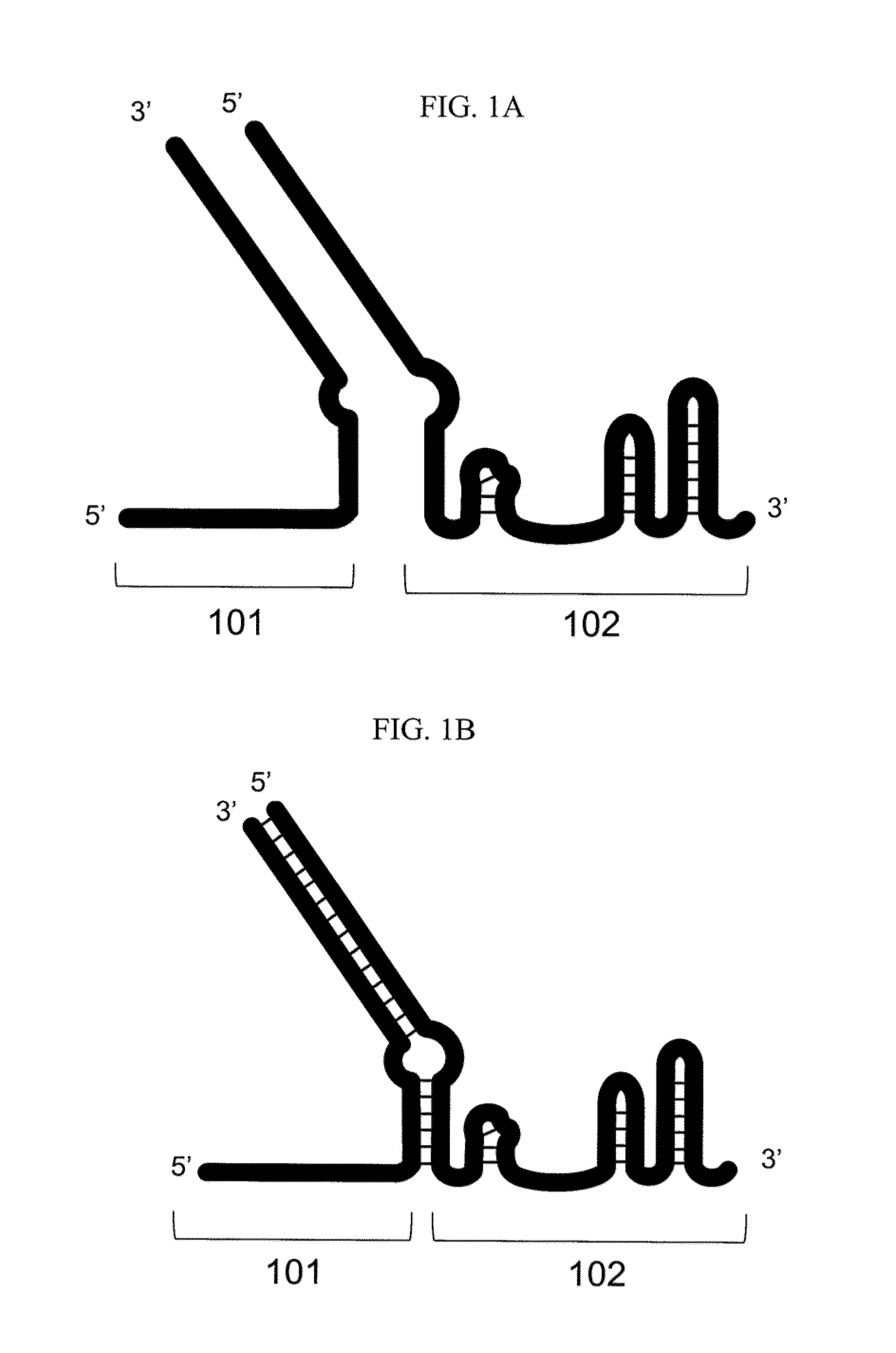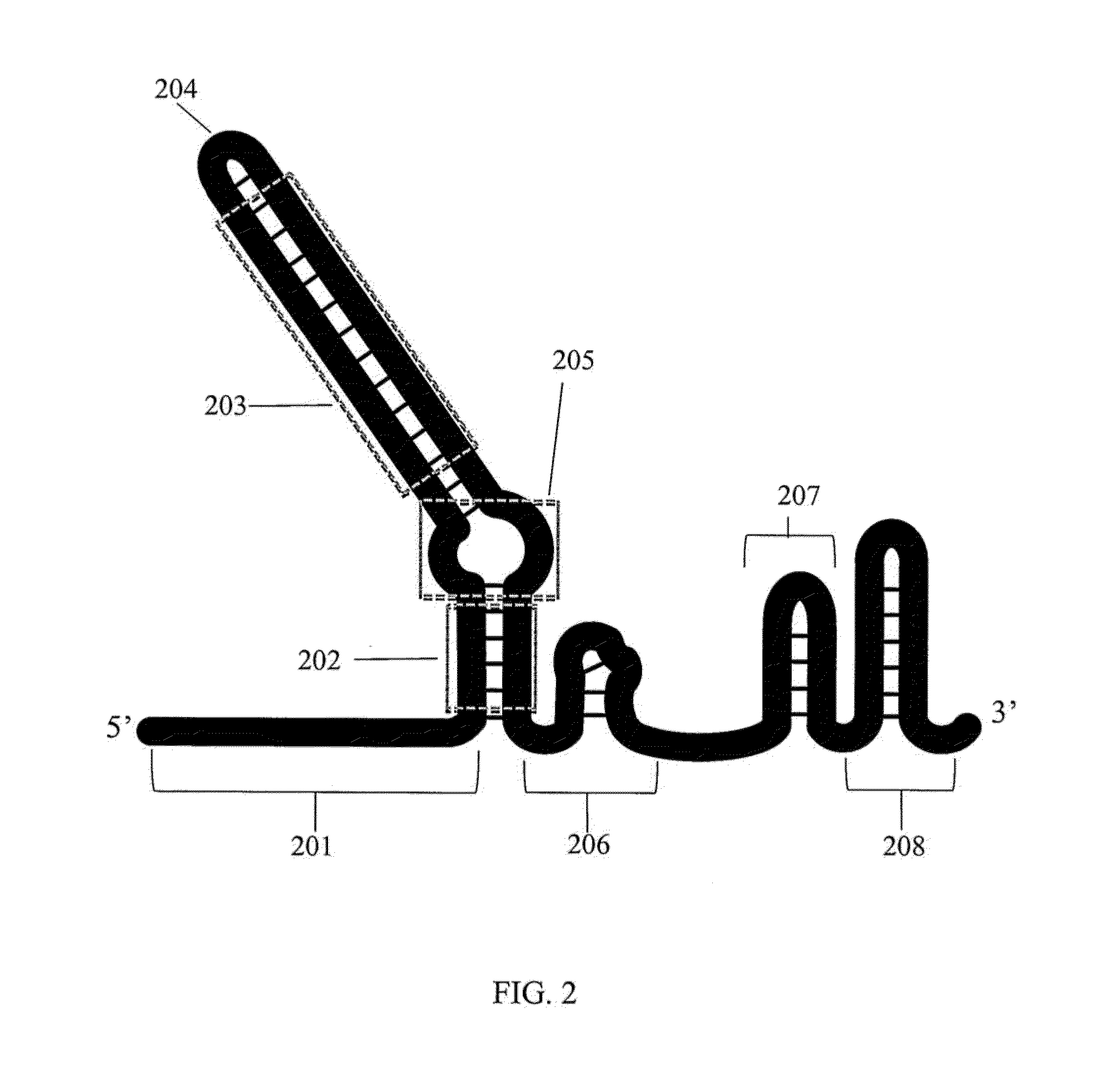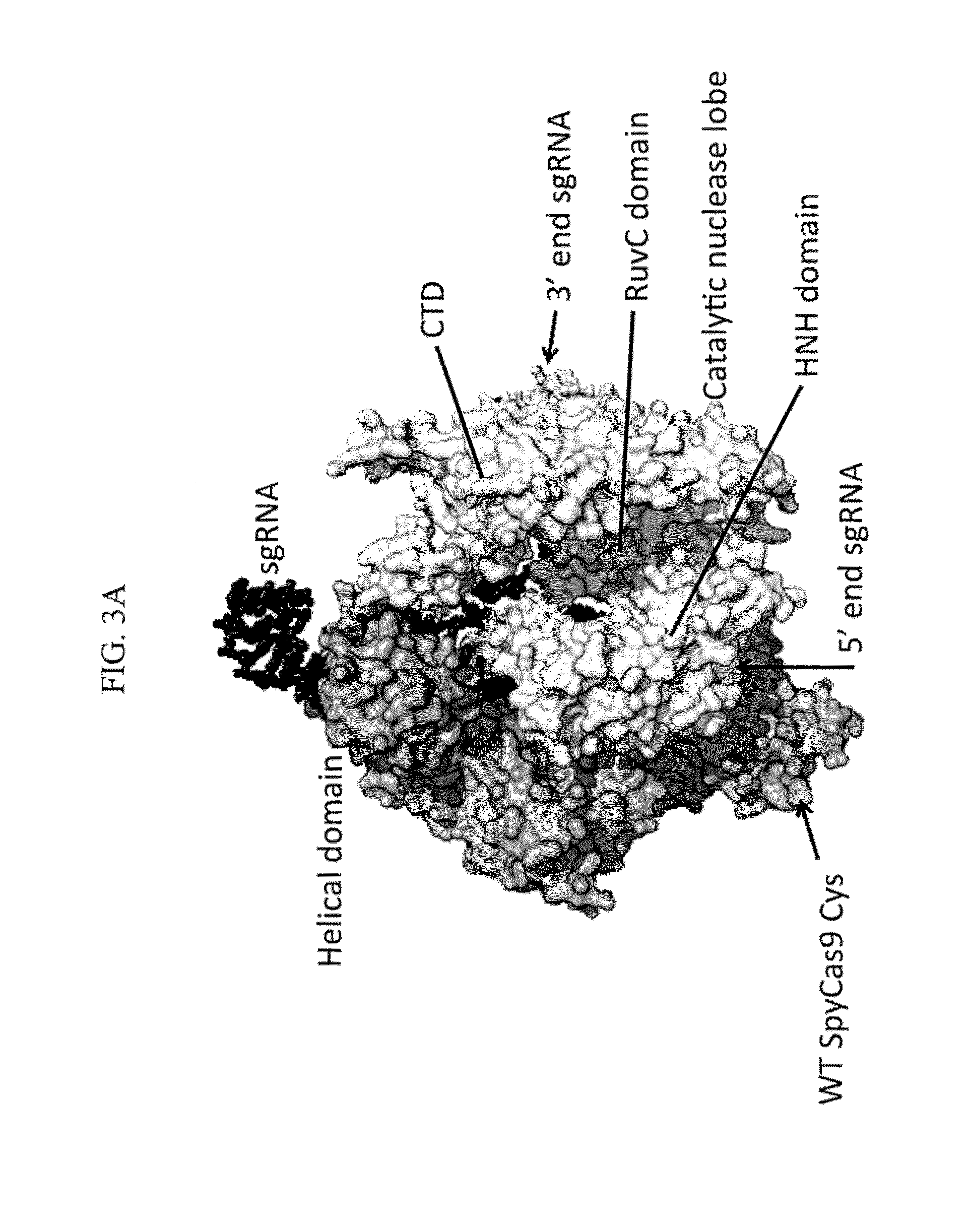Methods for increasing cas9-mediated engineering efficiency
a technology of cas9 and engineering efficiency, applied in the field of type ii crisprcas9 systems, can solve the problems of inefficient site-directed breakage repair by hdr at target nucleic acid site, and achieve the effect of reducing binding and/or cleavage of off-target nucleic acid and reducing binding and/or cleavag
- Summary
- Abstract
- Description
- Claims
- Application Information
AI Technical Summary
Benefits of technology
Problems solved by technology
Method used
Image
Examples
example 1
Production of dCas9 Nuclease Blocker and Cas9 Nuclease Components
[0197]sgRNA components of dCas9 nuclease-blocker (dCas9-NB, i.e. a Cas9 lacking catalytic activity) ribonucleoprotein (RNP) complexes (also termed “sgRNA / dCas9 complex” herein) and catalytically active Cas9 nuclease RNP complexes (also termed “sgRNA / Cas9 complex” herein) were produced by in vitro transcription (e.g., T7 Quick High Yield RNA Synthesis Kit, New England Biolabs, Ipswich, Mass.) from double-stranded DNA templates incorporating a T7 promoter at the 5′ end of the DNA sequence. Polymerase Chain Reaction (PCR) using 5′ overlapping primers was used to assemble the double-stranded DNA templates for transcription of sgRNA components. The sgRNA components, templates and primers used are identified in Table 1. The sequences of the oligonucleotide primers used in the assembly are presented in Table 2.
TABLE 1Overlapping Primers for Generation of dCas9-NB and Cas9 NucleasesgRNA Component TemplatesComponentTarget for D...
example 2
Deep Sequencing Analysis for Detection of Target Modifications in Eukaryotic Cells
[0201]This example illustrates the use of a MiSeq Sequencer (Illumina, San Diego, Calif.) for deep sequencing analysis to evaluate and compare the DNA cleavage (as inferred from non-homologous end joining, or NHEJ) of selected Cas9 nuclease off-target sequences in the presence and absence of dCas9-NBs. In this example, Cas9 was directed by a specific sgRNA to a sequence (GGGTGGGGGGAGTTTGCTCCTGG, SEQ ID NO:82) within the human gene Vascular Endothelial Growth Factor A (VEGFA). dCas9 was directed towards an off-target, sequence (GGATGGAGGGAGTTTGCTCCTGG, SEQ ID NO:83) known to be targeted by Cas9 RNP nuclease off-target to prevent off-target cleavage as well as a sequence (GGGGCCACTAGGGACAGGATTGG, SEQ ID NO:84) within the control locus, Adeno-Associated Virus Integration Site 1 (AAVS1).
[0202]A. Transfection of Cas9 / dCas9-NB RNPs:
[0203]To assemble Cas9 and dCas9 RNPs, 1.3 μl of sgRNA (corresponding to appr...
example 3
Identification of Cas9 RNP Off-Target Loci
[0223]This example illustrates the method through which off-target Cas9 nuclease sites may be identified. The method presented here is adapted from Tsai et. al., “GUIDE-seq enables genome-wide profiling of off-target cleavage by CRISPR-Cas nucleases.,” Nat Biotechnol., 2015 February; 33(2):187-97.
[0224]A. Identify a Target-Site of Interest:
[0225]A given locus in a genome of interest (i.e. a human genome) is screened using bioinformatics approaches known to those skilled in the art to identify Cas9 target-sites. A 20 base pair target-site, followed by an NGG protospacer adjacent motif (PAM), is selected for nuclease targeting.
[0226]B. Assemble GUIDE-Seq Components:
[0227]Oligos are obtained (Integrated DNA Technologies, Coralville, Iowa) for generating a blunt, double-stranded oligodeoxynucleotide (dsODN) that will be utilized for the GUIDE-Seq method. The dsODN contains phosphothiorate linkages at the 5′ ends of both DNA strands. The dsODN is...
PUM
| Property | Measurement | Unit |
|---|---|---|
| Fraction | aaaaa | aaaaa |
| Fraction | aaaaa | aaaaa |
| Catalytic activity | aaaaa | aaaaa |
Abstract
Description
Claims
Application Information
 Login to View More
Login to View More - R&D Engineer
- R&D Manager
- IP Professional
- Industry Leading Data Capabilities
- Powerful AI technology
- Patent DNA Extraction
Browse by: Latest US Patents, China's latest patents, Technical Efficacy Thesaurus, Application Domain, Technology Topic, Popular Technical Reports.
© 2024 PatSnap. All rights reserved.Legal|Privacy policy|Modern Slavery Act Transparency Statement|Sitemap|About US| Contact US: help@patsnap.com










